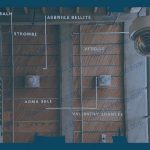What Constitutes a Delaware Lease Agreement?
A Delaware Lease Agreement is a legally binding contract between a landlord, or property owner ("lessor"), and a tenant ("lessee") that establishes the terms and conditions of their rental agreement, or any obligations associated with the lease of a property. Real estate commonly refers to a "lease" as the rental of an apartment, but a "rental agreement" is also the leasing of real estate, such as the lease of a commercial property. Delaware law requires a lease agreement to be in writing if the lease is for a period longer than one year . Most commercial leases and even many residential leases are written agreements because of the length of the lease term, and offer great detail on the legal rights and responsibilities of both parties. A basic lease agreement should include the following: Unless there is a written lease, some states do not allow a landlord to raise the "leases" or the charges associated with the lease. Failure to identify the maximum rent can lead to a debate as to how much the monthly payment actually should be.

Key Provisions in Delaware Lease Agreements
Delaware law requires that lease agreements cover certain aspects of the landlord-tenant relationship. According to the Delaware Code, a lease agreement must specify the following:
• The length of time covered by the lease (including an expiration date and any provisions for renewal or extension);
• Where and when to pay rent and how much is due each month;
• Whether utilities will be included with the rent, and which ones;
• Whether pets are allowed;
• Who is responsible for repairs inside and outside the units and common areas (which includes everything from broken glass to leaking plumbing to snow removal);
• What condition the property can be in when the tenant moves in and what condition it’s expected to be in when the tenant leaves;
• Whether there will be any furnishings provided;
• Other lease options such as furnishing access to pools or fitness centers and laundry facilities;
• Additional conditions relevant to your specific property.
It’s also a good idea to have a section in your lease agreements detailing emergency contact information, cleanup and garbage management, noise control, and anything else specific to your property that you think is relevant.
For example, if you own an apartment complex with on-site laundry facilities, you may want to include a clause that details the hours of the laundry facilities, the cost of using each machine, and delineate who is responsible for keeping the laundry facility clean.
Rights of Delaware Tenants & Responsibilities of Landlords
The landlord and tenant relationship is governed by various duties and obligations, including those set forth in Delaware law and those contained in the lease agreement itself. In addition to the various rights and obligations that Delaware law imposes on landlords and tenants, lease agreements typically contain their own provisions governing the rights of the parties.
Delaware Landlord/Tenant Statute Under Delaware law, landlords have the obligation to "comply with the requirements of applicable building and housing codes materially affecting health and safety . . . [a]fter rental of the premises to a tenant, to make all repairs and do all other maintenance and keeping of the premises in a fit and habitable condition." 6 Del. C. § 5306(a)(1)-(2). Landlords must also "keep all common areas of the premises in a clean, safe, sanitary and in good condition" and "maintain all plumbing facilities in reasonable working order." 6 Del. C. § 5306(a)(3),(8).
Landlords also have the affirmative duty "to provide locks and a locking device for each outside door equipped with a knob lock or deadbolt lock . . . [and] a locking device for each window or opening leading to a common area or space." 6 Del. C. § 5306(a)(5)-(7). Furthermore, "a tenant may not refuse to pay rent for the failure or delay of the landlord to perform the landlord’s duties under this section . . . [b]ut a tenant may in a summary action recover any person who has suffered actual damage or injury as a result of a violation of any of the duties imposed upon the landlord in this section." 6 Del. C. § 5306(b).
Tenant Rights Under the Delaware law, a tenant has the right to "the use and enjoyment of the premises in peace and without interruption by the landlord." 6 Del. C. § 5309(1). Tenants also have the right to: "[a]bstracts of title to the premises for inspection, during reasonable hours and after 3 days’ notice, given by the landlord or the landlord’s agent or legal representative to the tenant," 6 Del. C. § 5309(2); "[a] copy of all rental agreements, at the time the tenant first takes possession of the premises," 6 Del. C. § 5309(3); "[a] receipt for all money paid by the tenant on account of rent, other than cash]," 6 Del. C. § 5309(4); "quiet enjoyment of the premises," 6 Del. C. § 5309(5); "[a] band and warm water supplied to the premises . . . at a reasonable rate," 6 Del. C. § 5309(6); and "[c]ommencement of an action for nonpayment of rent for an arrearage exceeding 30 days only by providing the reasonably required notice of the landlord’s intention to sue the tenant for such arrearage," 6 Del. C. § 5309(6].
Landlords’ Sections in Leases While not all leases include express provisions addressing the rights and obligations of the landlord and tenant, those provisions that are present tend to address the following topics: early termination rights (for example, a right to terminate the lease if the premises is damaged to such an extent the the tenant could no longer use it for its intended purpose); abatement of rent (for example, rent will be abated to the extent that the tenant is unable to occupy the premises due to damage or condemnation); and the right to install improvements (e.g., the landlord’s consent is required prior to the installation of any improvements).
Common Pitfalls in Delaware Lease Agreements
Lease agreements in Delaware can, and often do, contain significant failings regarding key statutory requirements as well as various lease provisions which may cause issues in the future.
One common pitfall is neglecting to confirm that all parties who are signing the lease have the authority to do so. You may know the other party, but if they do not have the required authority from their company or organization to agree to the terms of the lease, it can render your lease agreement a nullity.
Another mistake is failing to adequately describe the property to be leased. A poorly worded legal description can create disputes down the road as to whether the premises you thought you were receiving includes land, buildings, personal property, rights of way, easements, leases and other attributes .
Other areas where common mistakes are made in Delaware include failure to identify the "time is of the essence" date, failure to address transfers of the leasehold, non-standard broker commissions, improper or inadequately described escalations in rents, incorrectly identifying utilities responsibility, excessive use or lease restrictions or prohibitions, assigning military or commercial use restrictions, improper assignment of maintenance responsibility (particularly snow removal and landscaping) as well as other maintenance items, too much or too little landlord repair responsibility, and improper insurance requirements.
How to Amend or Terminate a Delaware Lease Agreement
When it comes to lease agreements in Delaware, the legal requirements for amending and terminating an existing agreement are fairly straightforward. If both parties — lessor and lessee — agree to any modification or termination of the agreement, they may do so in writing and may choose whatever is convenient and appropriate. There is no specific law on the books that requires a certain format or form for the amendment, but generally, if the change is substantive, it is best to reissue as a new lease with appropriate amendments highlighted from the original.
Of course, if there is no mutual agreement, then the terms of the lease itself will dictate whether a lease can be terminated before the specified end date. Many leases have provisions for early termination based on the specific breach of the lease terms by the lessor or the lessee. However, if there is no specific provision for early termination, a lessor in Delaware can terminate the lease if the tenant goes into bankruptcy, habitually fails to pay rent, commits waste or if the lease is not for a year or more and it is summer or winter.
The Peninsula Properties v. Brown appeal set out the legal requirements for early termination by a lessor in Delaware. The ruling summarized three legal reasons for termination: breaches by the tenant, forfeiture of the lease to end unlawful use of the premises, and forfeiture for forfeiture by express agreement under the lease.
If a tenant wishes to terminate an existing lease agreement, they must also comply with the lease agreement. For periodic leases, there may be statutory requirements for notice to the other party. For example, in a rental agreement that is for a term less than 2 years, a tenant must give 60 days’ notice before termination.
In the case of any dispute regarding termination, we recommend that you consult with an experienced attorney to protect your interests.
FAQ on Delaware Lease Agreements
Finding suitable premises for a business is, of course, a key issue for many business owners and landlords in Delaware, and practitioners should expect to field a number of common questions and issues related to Delaware lease agreements.
What happens if there is a dispute with the landlord or the tenant?
In the event there is a dispute between the landlord and the tenant and it needs to be litigated in court, what constitutes "possessory actions" is governed by 25 Delaware Code. 45 et seq., subsection 4201. A possessor action is defined as a matter where a party seeks to preserve its right of possession to premises by obtaining an injunction or a declaratory judgment from the Court of Chancery or a money judgment from the Superior Court. Holding over (staying past the expiration of the lease) is also treated as a possessory action.
What if one of the parties to the lease agreement is in violation of the lease terms?
If a tenant is in violation of one of the provisions in the lease, the landlord can pursue the following remedies under Delaware law: If a landlord is in violation of one of the lease provisions , the following is an itemized list of a tenant’s remedies under Delaware law: Delaware’s general eviction procedure also requires getting a judgment before a tenant may be removed from the premises. If a tenant does not leave voluntarily, the tenant may be removed by the sheriff.
Does a dispute have to be litigated in Delaware?
By Delaware law, the answer to this question is yes. Delaware law, 10 Del. C. § 651, provides that "[n]o action or proceeding pertaining to any leasehold estate shall be commenced or maintained in any other county than that wherein the premises are situate, unless the parties thereto, or any of them, shall all reside in some other county . . . ."
Where should a client go for more information about Delaware lease agreements?
There are a number of resources that can provide additional information about Delaware lease agreements. The Delaware Department of Consumer Affairs has assembled a Leasing Agents & Landlord Rights and Responsibilities pamphlet that provides judicial references from the court system related to tenant and landlord rights. Another great resource is the Community Legal Aid Society, Inc., the largest provider of free civil legal services to low-income Delawareans, which offers a variety of legal aid services, including a Tenant’s Rights Handbook and a Landlord Rights and Responsibilities pamphlet.

